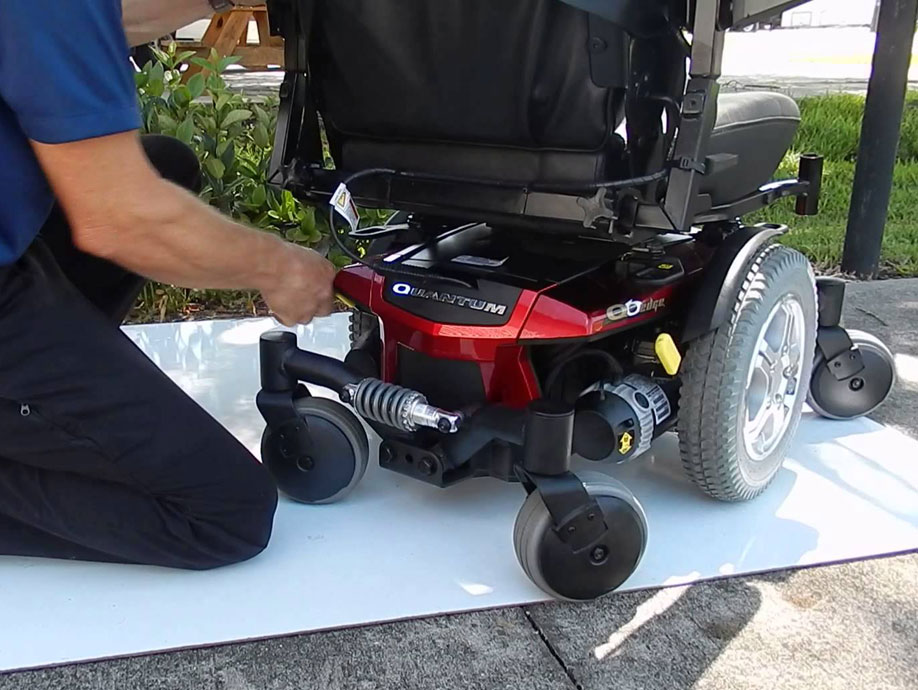This guide will help wheelchair users maximise their batteries for long-life and peace of mind when out and about. Click the link below to print out a handy guide.
Battery Installation
Always have your batteries installed by a professionally trained wheelchair technician so they are installed safely and correctly. Never mix different battery manufacturers or technologies, or use batteries with different date codes.
Break-in Period. What’s This?
Range and running time of batteries generally increase with use. This is because gel battery performance improves once the battery has been cycled (discharged and recharged) 15–20 times. This break-in period is necessary to fully activate the battery for maximum performance and longevity. So if your battery life seems to have limited capacity when you first use it, don’t despair, things will improve!
When to Charge
Charge daily; the best time is overnight while you are sleeping. Over-charging is not a problem with today’s chargers as they are voltage limited and shut off automatically. NEVER DRAIN YOUR BATTERIES COMPLETELY. Charge a discharged battery as soon as possible rather than leaving it for an extended time.
Proper Charging Guidelines
Always use the charger that came with the battery. Other types of chargers can damage your battery. The harder a battery has to work on an ongoing basis, the shorter its life expectancy. In other words, an active, outdoor, heavier user should expect that their batteries would need replacing more regularly than a sedentary, indoor, petite user.
Storage and Maintenance
Always store your batteries FULLY CHARGED. Check stored batteries once a month and recharge as required and then disconnect for further storage. Fully charged batteries can hold a charge for up to six months if looked after this way. Avoid temperature extremes for storage.
Safety
Dropping a tool or touching a watch or bracelet across the terminals can result in an electric shock, sparks or fire. Battery parts contain lead and other chemicals that are hazardous and may cause cancer or birth defects. Always wash hands after handling. Batteries produce explosive gases so KEEP CIGARETTES AWAY FROM BATTERIES AT ALL TIMES! Old batteries are considered hazardous and must be recycled through an approved outlet. In most cases it is illegal to discard such batteries in the garbage.



